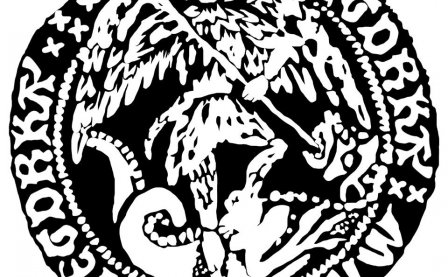Lotic is all about provocation. The unhinged, disjointed club music that J’Kerian Morgan dishes out provokes the listener to question their own sense of expectation while redefining the limits of what they can endure. On 2014’s stunning DAMSEL in DISTRESS mix, Lotic provoked us in part by toying with our collective memory. Not only did he completely reconfigure one of the year’s most cherished pop songs, but the beat patterns and melodies that tore across the mix birthed unfamiliar milieus that led to new ways of thinking about both the original track and the club landscape as a whole.
TMT writer SCVSCV recently spoke with Lotic about how this all fits into his new EP, Heterocetera. Here, the provocation goes beyond the music and encourages the audience to relate to Lotic as a gay, black man. The only reason that may be deemed a provocation to begin with is because Morgan sees himself as marginalized and wishes to challenge preconceived notions of identity. By forcing his listeners to contemplate the word “Heterocetera” whenever they wish to engage with this release, he’s making a statement about his own identity in a broader context and the differences that arise in the otherwise stereotypical relations between the audience and the artist.
This approach fits remarkably well on an aesthetic level too, shown by how Morgan will cut a Lotic track or how he selects his tracklists for live sets: “I generally feel that it’s my responsibility to play to that one person in the corner of the room who’s waiting for the DJ to DO something, to surprise them.” But here, Lotic also recognizes the boundaries that exist and the audiences that align themselves with them, and this enables his performances to thrive in various contexts. On Heterocetera, his awareness of a more controlled audience seems to bleed through, but in a way that’s a lot subtler than on DAMSEL. I’m not only talking about the use of “The Ha Dance” sample that has been a Lotic staple for the past two years, but also on “Phlegm,” which pulls on modern approaches to the genre à la Yamaneko and Jam City.
As far as style is concerned, it’s difficult not to draw comparisons to Arca, particularly Alejandro Ghersi’s debut and his most recent Sheep mix. Both artists have a knack for balancing the expected and the astonishing, the predictable and the alien, to create textures far removed from other artists working in comparable domains. But while the actual music comes first and foremost for both, there is a greater feeling of strategy and restraint with Lotic, a bigger sense of the entire package. It’s easy to pick out on Heterocetera: take for instance the opening bars on “Slay,” which start life as a multi-textured ambient glaze before a broken beat churns over itself and the core melody unfolds. It feels like the beat could blast apart at any moment, but Lotic keeps his cool and instead settles for perhaps his most delicate track to date.
That’s typical throughout the rest of the EP, which plays on similar sensitivities. As an audience, we might not necessarily feel at ease with the spasmodic shifts in BPM on “Suspension” or the jarring high frequencies on “Phlegm,” but Lotic has a way of turning these sounds into tools of seduction while also provoking a kinetic reaction that goes beyond dancing, tapping into responses that can easily be construed as violent, political, even sexual. Heterocetera is packed with writhing climaxes and blistering comedowns that leave you gasping without ever being able to forget who is behind them. Of course, confronting these contrasts remains a provocation on the artist’s part, but only ever in the best possible sense.




